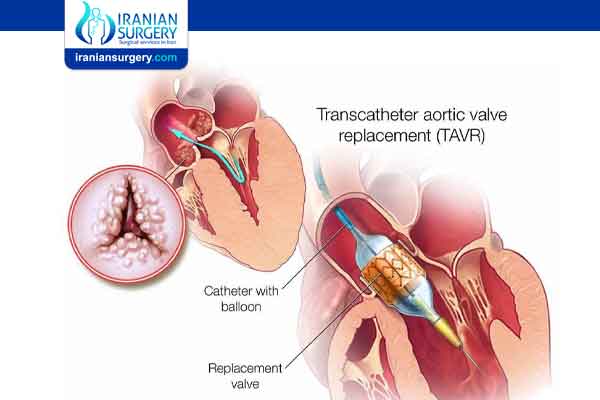Heart Valve Replacement Surgery Risks
Heart valve replacement surgery risks
RISKS OF SURGICAL HEART VALVE REPLACEMENT
Read more about : Iranian eye surgeons restored vision to the eyes of an Omani child.
Read more about : Coronary artery bypass surgery (CABG) success story
Surgical aortic and mitral valve replacement risks can include the following:
- Death
- Blood clots that develop in the heart or on the replacement valve. These clots may break loose and travel through the bloodstream (thromboembolism). This problem may cause a stroke or heart attack.
- Obstruction of blood circulation to the heart resulting in damage to the heart tissue (myocardial infarction)
- Angina (chest pain)
- Abnormal heartbeat (cardiac arrhythmia and dysrhythmia)
- Heart failure
- Damage to red blood cells (hemolysis) that can result in anemia
- Blood leaking around the outside of the prosthetic valve (paravalvular leak) or any problem with the valve that causes leaking of blood after the valve has closed (transvalvular leak)
- Any problem with the prosthetic valve that causes narrowing of the valve opening (stenosis)
- Failure of the valve to open and close properly
- Inflammation of the lining of the heart (endocarditis)
10 common questions about Heart valve replacement surgery risks
1What is the success rate of heart valve replacement surgery?
In the current era, surgical aortic valve replacement provides complete symptomatic relief with survival nearly similar to matched normal population with an overall operative mortality of 2% and stroke of 3% or less. Patients generally stay in hospital for one week and take 2-3 months for complete rehabilitation.
2What is the life expectancy of someone with an artificial heart valve?
The average time before mitral tissue valve failure is 11.8 years. ... Long-term survival was significantly better in patients aged 50 to 69 years who had a primary isolated aortic mechanical valve replacement than with a tissue valve
3How long can you live after heart valve replacement?
Life After Valve Replacement
Patients with a biological valve may need to have the valve replaced in 10 to 15 years. Mechanical valves may also fail, so patients should alert their doctor if they are having any symptoms of valve failure.
4Do you feel better after heart valve replacement?
You will feel tired and sore for the first few weeks after surgery. You may have some brief, sharp pains on either side of your chest. ... The incision in your chest may be sore or swollen. These symptoms usually get better after 4 to 6 weeks
5How serious is a heart valve replacement?
Possible risks of heart valve repair or replacement surgery include: Bleeding during or after the surgery. Blood clots that can cause heart attack, stroke, or lung problems
6Can you die from a bicuspid aortic valve?
This can lead to life-threatening problems. The most common congenital heart condition, bicuspid aortic valve disease affects about 1 to 2 percent of the population, says Bo Yang, M.D., an assistant professor of cardiac surgery at the University of Michigan Frankel Cardiovascular Center.
7Can you live a normal life with a bicuspid aortic valve?
Yes, about 30% of people with bicuspid aortic valve disease develop complications. They can be very serious, even life-threatening. This is why people diagnosed with BAVD should be under the ongoing care of a specialist in heart valve disease who can monitor changes in the heart, valves and aorta over time.
8Can you die from a leaky heart valve?
A leaky valve doesn't close the way it should, allowing some blood to flow backward into the left atrium. If left untreated, a leaky valve could lead to heart failure. ... You may need heart surgery to repair or replace the valve for severe leakage or regurgitation
9How do you feel after heart valve replacement?
Your Recovery
You have had surgery to replace your heart's aortic valve. Your doctor did the surgery through a cut, called an incision, in your chest. You will feel tired and sore for the first few weeks after surgery. You may have some brief, sharp pains on either side of your chest.
10Does your personality change after open heart surgery?
Although this condition, often referred to as “pumphead,” is usually short-lived, one study of bypass patients has suggested that the associated cognitive changes might worsen over time. Related research, however, indicates it is unlikely that cardiac surgery significantly alters how the brain works
[kkstarratings]


